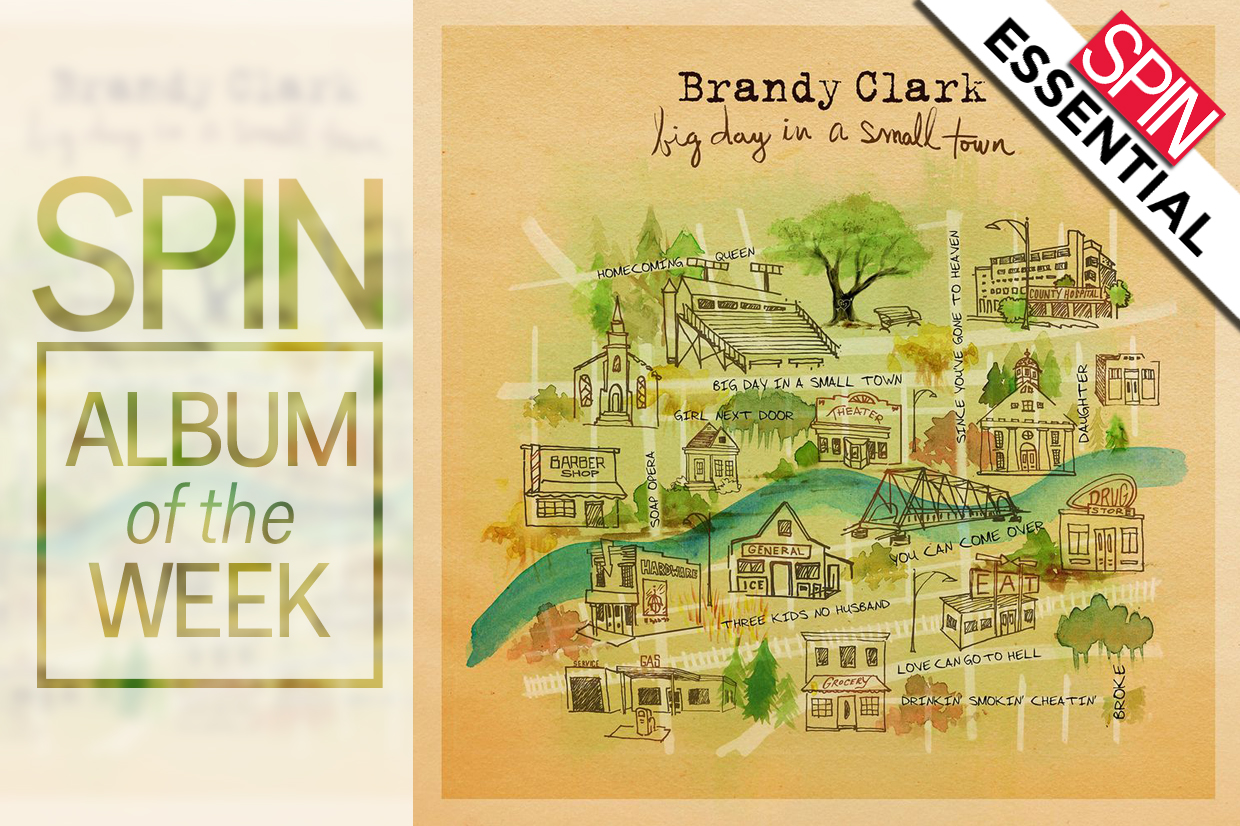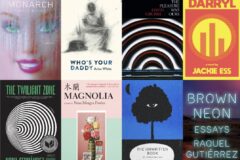Release Date: June 10, 2016
Label: Warner Bros.
A writer singing her own songs isn’t necessarily a singer. Brandy Clark made this point clear on 2013’s 12 Stories; the title’s J.D. Salinger allusion was the tip-off. Neat to the point of stainless, Clark’s debut sported the virtues of realist short fiction, filigree by filigree. Making modest points with a modest voice on songs like “The Day She Got Divorced” and “Take a Little Pill,” Clark was subject and object, behaving and observing. That album’s reserve suggested she was inching toward finding a voice — in every sense, for a singer is supposed to smear the difference between subject and object. Moreover, like many homosexual artists — Adrienne Rich and James Merrill in poetry, Rufus Wainwright and Pet Shop Boys in music — the co-writer of Kacey Musgraves’ “Follow Your Arrow” and Miranda Lambert’s “Mama’s Broken Heart” had released apprentice work that occluded what the public has come to know about her. There’s a sense in which these auteurs’ early stuff moves in shadows, afraid of stepping on dead leaves.
With relief, I can write that Clark the Artist has taken a few more steps into a sunlit room. Aggressive and big-grinned, sophomore album Big Day in a Small Town sounds fantastic; it’s often a superb piece of recorded music, designed to move people and make them feel things. A few months ago she dropped a hint of the new direction with “Girl Next Door,” bubblelicious country disco that takes Dolly Parton’s “Baby I’m Burnin’” and Shania Twain’s “That Don’t Impress Me Much” for a honky-tonk badonkadonk on a dust-covered terrace. The strings lend an air of menace; “Girl Next Door” imagines sexual attraction as a danger that may not end happily. In case the popped bass and thwacking, programmed drums frighten NPR fans, an acoustic guitar plays the hook over the fade.
Three quarters of Big Day in a Small Town boast the same crunch. Credit to Jay Joyce, whose productions for Eric Church (“Give Me Back My Hometown”) and Little Big Town (“Girl Crush”) shoved them out of their somnolent fog. But it’s Clark who realizes she can be a star if she acts scripts out instead of reminding people she wrote them. Over her title track’s goosestepping boom-pow beat, electric guitar-picking, and beefy chorus whoops, she savors the vowels in “somebody wrecked a pickup” and “12-pack of Bud.” People will say her most (in)famous client Miranda Lambert has influenced her hardest; I say it’s Reba McEntire, for whom Clark wrote “The Day She Got Divorced” in 2009, before Clark embalmed it on 12 Stories herself — Reba, the barn-voiced redhead of “Fancy” and “Whoever’s in New England.” The debt’s clearer on “Daughter,” a rolling number with Roseanne Cash’s “Tennessee Flat Box Top” and Yoakam in its blood, in which Clark and a harlequin splash of organ taunt a man in the pettiest way: hopes he has a girl.
Petulant, cockeyed, mean, “Daughter” is all attitude, which is what distinguishes it from the dead moths of 12 Stories. Whether through accident or design (and she’s been in this biz long enough to include male lovers in song, so don’t underestimate her), Clark has figured out that the pose — the affectation — is the homosexual artist’s gift to pop culture. Reminding straights that a smirk can be as warm as a smile and sincerity as fake as a painted mustache, gay men and women teach us how to weigh emotional responses; hell, even non-gays Dolly and Shania understood this.
However, Clark has a couple of bad habits that need modulating. She still thinks like a writer. Creative writing workshops across the land have so fetishized the detail that they have come to stand for realism — the realism of the inventory, the grocery list, the TSA travel advisory. Good singers don’t need details. Intimations, chance remarks, aperçues, doggerel even — singers can inflect them. Color is harder to throw away; it’s gotta mean something. At times the sheer number of details throughout Town is oppressive. Waffle House? Ill-fitting sequined dress? Jeans needin’ patchin’? Check, check, annnnnd check.
When she regresses to sepia-toned respectability, she’s dangerous; she can’t resist treating a ballad as if you’re supposed to slow it down. Tracks like “You Can Come Over,” with their neat metaphorical twists (“…but you can’t come in”) cry out for the dulcet yearning of Lee Ann Womack. Of average means but as alert to melody as a bachelor scoping the bar action, her plainspokenness projects its own authenticity, which is why listeners have warmed to her. And, to a degree, the tension between her chaste-sounding voice and those ribald thoughts is a thrill.
To imagine that Big Day in a Small Town will sell more copies in 2016 than 12 Stories did three years ago depends on how fervently one believes Clark will garner the same attention as Lambert’s ex and his drum loops. Modest insights and modest voices surpassing expectations are the stuff country radio’s been made of for decades. Simply put, I don’t know if Clark wants to be a star hard enough. Which is why it’s fortunate she remains a writer after all.





